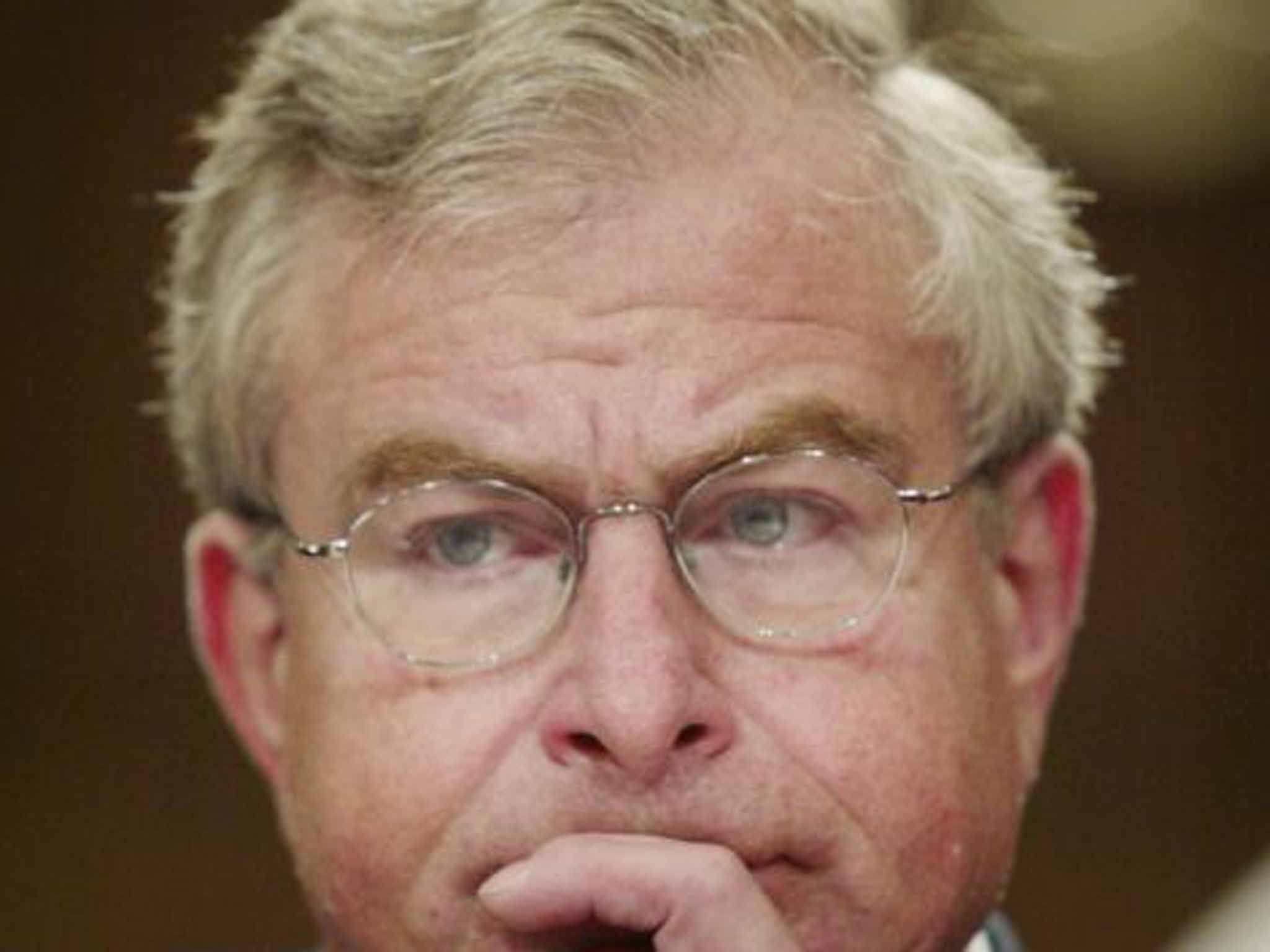Sandy Berger: President Clinton's national security adviser who managed the United States' position of global strength
A curious mix of the genial and the temperamental, he preferred to work behind the scenes yet was a fixture on the Washington social circuit

Your support helps us to tell the story
From reproductive rights to climate change to Big Tech, The Independent is on the ground when the story is developing. Whether it's investigating the financials of Elon Musk's pro-Trump PAC or producing our latest documentary, 'The A Word', which shines a light on the American women fighting for reproductive rights, we know how important it is to parse out the facts from the messaging.
At such a critical moment in US history, we need reporters on the ground. Your donation allows us to keep sending journalists to speak to both sides of the story.
The Independent is trusted by Americans across the entire political spectrum. And unlike many other quality news outlets, we choose not to lock Americans out of our reporting and analysis with paywalls. We believe quality journalism should be available to everyone, paid for by those who can afford it.
Your support makes all the difference.“You can't expect a trade lawyer to be a global strategist,” sniffed Henry Kissinger, the epitome of the latter, about Sandy Berger. Yet Berger, supreme pragmatist, workaholic and indeed a trade lawyer, rose to hold Kissinger's old White House job – and during Bill Clinton's second term became one of the most influential national security advisers in recent American history.
His close relationship with the 42nd president was a major factor behind that influence. The son of a shopkeeper, educated at Cornell and Harvard Law School, Berger had met Clinton when both worked on George McGovern's ill-fated campaign for the presidency in 1972. They were two young Democrats, lawyers by training and opponents of the Vietnam war, and forged an instant bond.
Later Berger held jobs at the Carter administration State Department, and at the prominent Washington law firm Hogan & Hartson where he specialised in trade issues, focussing on China and Japan. But he never lost touch with his friend, and long encouraged the young Arkansas governor to run for president.
After passing on 1988, Clinton sought and won the White House four years later. During the campaign Berger was part of the candidate's foreign policy team, and was appointed deputy to national security adviser Tony Lake. When Lake retired to his Massachusetts farm after Clinton won re-election, Berger was the obvious replacement.
Whatever Kissinger's disdain, Berger perfectly fitted the job's requirements at the time. The Cold War was over and China had yet to emerge as a major geopolitical force. The moment demanded less a redrawing of global power structures than deft management of America's unchallenged hegemony. That Berger supplied.
He was a curious mix of the genial and the temperamental. He preferred to work behind the scenes yet was a fixture on the Washington social circuit. He could defuse a tense situation with a joke yet in almost the next breath could be maddeningly temperamental. Above all he was an enabler, “the guy with the briefcase”, as John Podesta, who served as chief of staff under Clinton, described him. Few national security advisers have been better at heading off ego clashes between “big beast” Cabinet officials. Unsurprisingly, such skills meant Berger's counsel was sought well beyond the field of foreign policy. As the Monica Lewinsky affair unfolded, he was often part of the informal White House group that handled the political ramifications of the scandal.
In 1999, Berger was heavily involved in the decision to use US air power to break Slobodan Milosevic's grip on Kosovo, as the then Serbian province's ethnic Albanian majority sought to break free of Belgrade, the closing act of the post-Tito Balkan wars. The trade lawyer in him successfully pressed for China's entry into the World Trade Organisation, a bet (whether a winning or losing one is still unclear) that Asia's budding economic power could be persuaded to play by Western rules.
But Berger could not escape the entanglements of the Middle East and radical Islam. In 1998, after the deadly attacks on two US embassies in East Africa, the Clinton administration narrowly failed with a cruise missile strike against an Afghan encampment that Osama bin Laden had left hours before. More controversial was a missile launched against a pharmaceutical factory in Sudan wrongly supposed to have been supplying chemical weapons to al-Qaeda.
That December, Berger was an architect of the four days of bombing of Iraq called Operation Desert Fox. Ostensibly in retaliation for Saddam Hussein's failure to abide by United Nations disarmament resolutions, the limited strikes would be a forerunner of the 2003 invasion.
Indirectly too, militant Islam was responsible for the biggest blot on Berger's career. Called to testify before the 9/11 Commission investigating the September 2001 attacks about the advice he had given his Republican successor Condoleezza Rice, he illegally removed and destroyed relevant documents from the National Archives. For a while, the bizarre affair made him a pariah in official Washington. Eventually he pleaded guilty and paid a $50,000 fine, losing as well both his national security clearance and law licence.
Generally, however. Berger possessed a judgement that would have served his successors well. “I've always said containment is aesthetically displeasing but strategically sufficient,” he once noted. “You wake up in the morning and [Saddam Hussein] is still there and it would be far preferable if he weren't. As for 'getting Saddam' ... that option would be emotionally gratifying, but the costs of it would be greater than our national interests.” Prophetic words indeed.
Samuel Richard Berger, lawyer and US government official: born Sharon, Connecticut 28 October 1945; married 1969 Susan Harrison (two daughters, one son); died Washington DC 2 December 2015.
Join our commenting forum
Join thought-provoking conversations, follow other Independent readers and see their replies
Comments